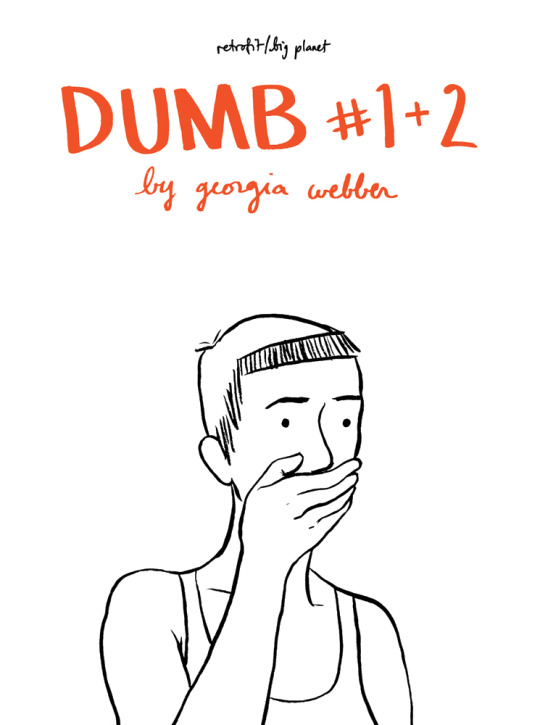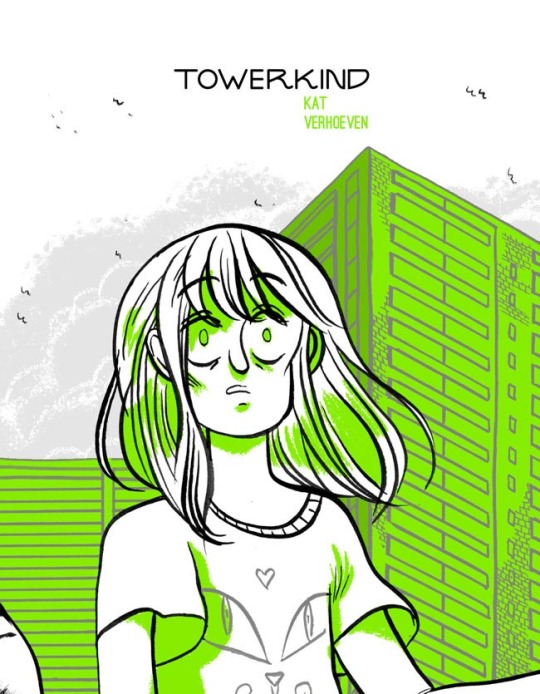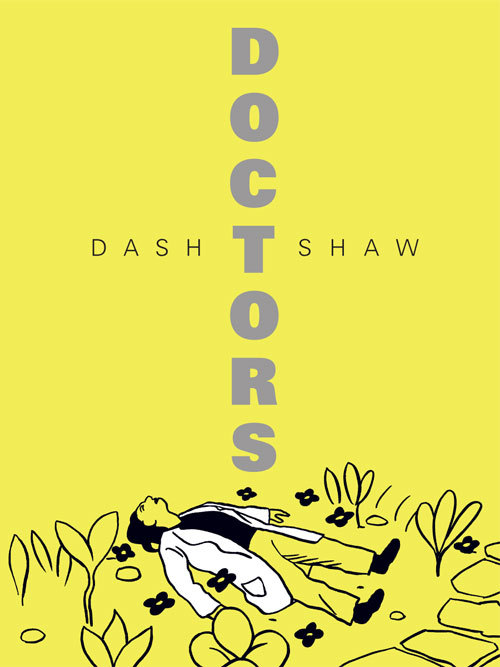Happy Wednesday. Hope you’re having a wonderful new year. I don’t generally make too much fuss about a new year, but this year I wanted to try to resolve to write a little bit more frequently.
Part 1 | Part 2 | Part 3 | Part 4 | Part 5 | Part 6 |

Dumb 1 & 2 by Georgia Webber (Retrofit Comics) tumblr: @geewebber / @retrofitcomics
It wasn’t until this winter that I finally got to read the first two issues of Dumb, the long-running comic series from Webber about her vocal injury. The series is being bookended by Retrofit comics, who have reprinted issues 1 and 2 in a combined 40 page comic and will publish the final two issues in 2016.The beginning of the series is Webber coming to understand what’s going on and trying to come to terms with her injury, but what I think fascinated me about Dumb 1&2 how it made me consider my own voice, my presence with other people, and the cacophony of life that, without a voice, you have a hard time participating in. It also made me consider how we project ourselves into spaces with our voice, and what losing that means.

Towerkind by Kat Verhoeven (Conundrum Press) tumblr: @verwho
Towerkind was a unique book among all the things I got at TCAF this year; it exists as a 1:1 reproduction of mini comics that Verhoeven mailed to folks in subscription packages, and is a small book. I carried it around in my pocket for most of TCAF. But Verhoeven creates a stark urban fantasy in an inclusive, multicultural way, broadening the traditional scope of this type of story, where small children are imbued with fantastic powers. Towerkind also feels like a dissection of the consequences of segregation, drawn on the lines of race, faith, income, and immigration status.

Doctors by Dash Shaw (Fantagraphics) tumblr: @dashshaw / @fantagraphics
I didn’t know what to think about Dash Shaw’s Doctors when it originally came out, but I’ve revisited the work a few times.
At first I was concerned that the stiffness of Shaw’s writing of Doctors was a flaw – and now I see that it’s intentional. Each time I find new things about the book to appreciate, especially Shaw’s colors, which act as an emotional and storytelling element unto themselves. You can see my review here.

Mighty Star and the Castle of the Cancatervater by A. Degen (Koyama Press) tumblr: @adactivity / @koyamapress
Degen made the list last year, and this year’s book, Mighty Star, is a leap forward. I loved the combination of sly wit, manga-influenced action, and symbolism, and wrote a review of the book in August. Degen’s work this year made me think about the gaps in my knowledge of classic literature and philosophy, and it also helped me to recognize that a reading of any book is colored by the prevailing contents of your brain, whatever that be. How will Mighty Star read when I’m 40? How will it read when I am 75? I’m excited to find out.
Only two more entries before we’re done! See you Friday.
